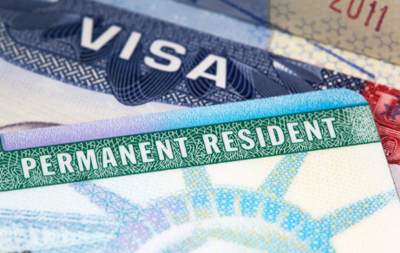
Many professionals—especially those in tech and research—often ask one big question when they start preparing for the EB1A green card:
“How many citations do I need to qualify?”
It’s a fair question, especially if you come from an academic background where citations are considered a significant form of recognition. But the answer is not as simple as a number.
Let’s break it down.
Why Are Citations Even Talked About?
In EB1A, citations are used as evidence to show that your work has made an impact. If other researchers cite your papers, your ideas are valuable and used in the field.
That’s why citations are commonly used to support two of the ten EB1A criteria:
You’ve published scholarly articles.
You’ve made original contributions that are significant to your field.
But—and this is important—you don’t need citations to qualify for EB1A. They help, yes. But they’re just one piece of a bigger picture.
Is There a Minimum Number of Citations?
No. USCIS does not say, “You must have 100 citations to qualify.” There’s no fixed number.
They care more about how you present your work and whether your contributions are recognized and valuable. For example, 40 citations in important papers might mean more than 200 citations in places that don’t matter much to your field.
What matters is:
Are others using or building on your work?
Can you show that your work has made a difference?
Are your citations independent (not just self-citations)?
Is your work recent and still being cited?
Here’s the Twist
At EB1A Experts, we’ve seen something surprising.
Many tech professionals we’ve worked with got their EB1A I-140 approvals without any patents or even a large number of citations. Some had none.
How did they do it?
They had strong stories to tell. Their work showed leadership. They had judged others’ work. Some were featured in tech media. Others were key contributors to successful products or technologies.
They didn’t have academic recognition, but they had real-world impact.
That’s the part many people miss. EB1A isn’t just for researchers. It’s for people who have done extraordinary work and can prove it.
What Should You Focus On If You Don’t Have Citations?
If you’re worried about your low (or zero) citation count, here’s what you can work on instead:
Show your leadership: Have you led teams, products, or major projects?
Get media mentions: Has your work been covered in articles, blogs, or the press?
Judging roles: Have you reviewed others’ work at conferences or events?
Join elite groups: Are you a respected tech or professional body member?
Strong recommendation letters: Get people who know your impact to speak for you.
These things matter more than most people realize. They are all valid and powerful parts of your EB1A profile.
So, how many citations do you need?
The honest answer: Enough to show your work has been noticed—but even if you have none, that’s not the end.
If your work is strong, your impact is real, and your story is well presented, you can qualify for EB1A—just like many others we’ve helped.
You don’t have to chase numbers. You have to show that what you’ve done matters.


Post a comment as Guest
Report
Watch this discussion.
(0) comments
We welcome your comments
Log In
Post a comment as Guest
Keep it Clean. Please avoid obscene, vulgar, lewd, racist or sexually-oriented language.
PLEASE TURN OFF YOUR CAPS LOCK.
Don't Threaten. Threats of harming another person will not be tolerated.
Be Truthful. Don't knowingly lie about anyone or anything.
Be Nice. No racism, sexism or any sort of -ism that is degrading to another person.
Be Proactive. Use the 'Report' link on each comment to let us know of abusive posts.
Share with Us. We'd love to hear eyewitness accounts, the history behind an article.